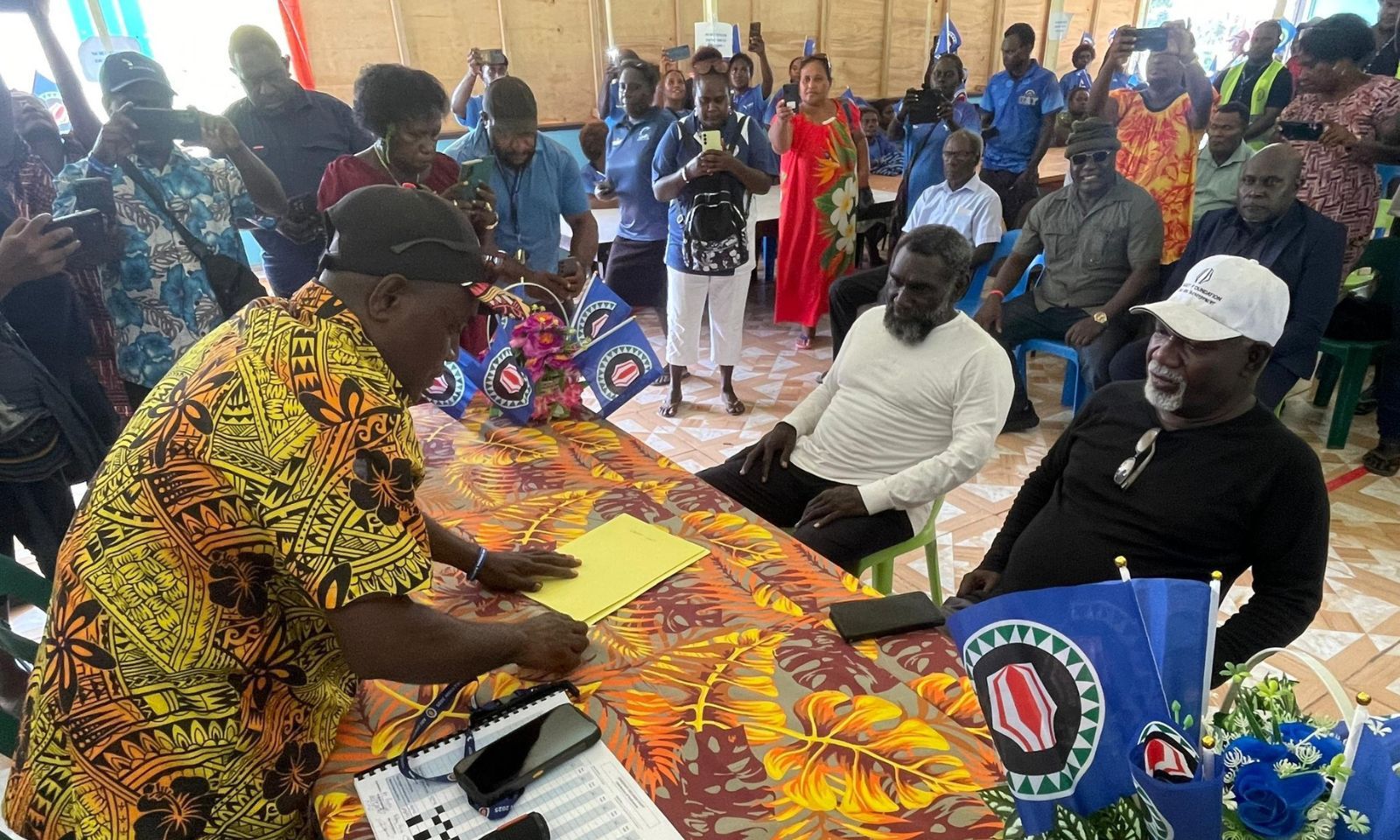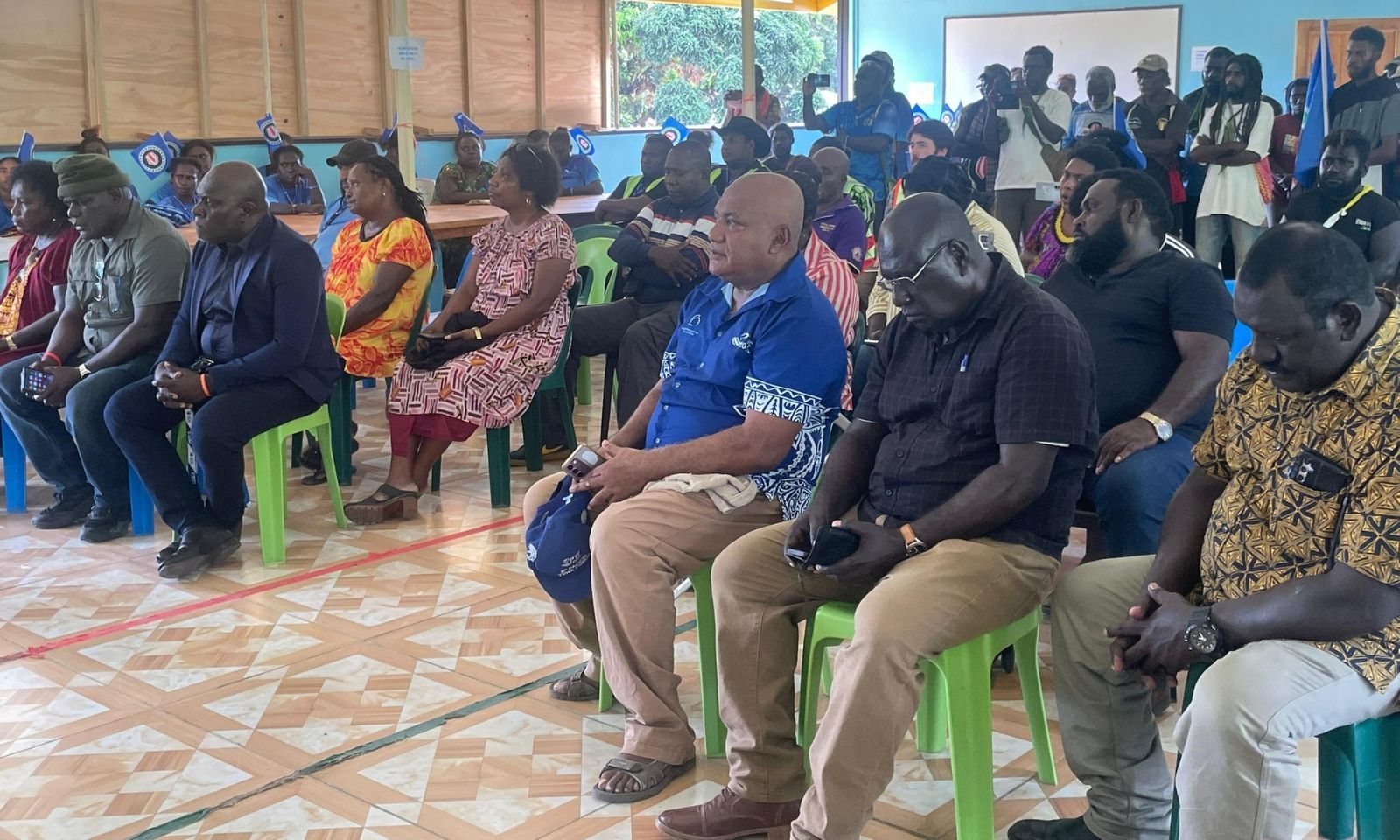

Ishmael Toroama has been re-elected President of the Autonomous Region of Bougainville.
Photo/Facebook/
Ishmael Toroama's election victory pushes Bougainville towards independence by 2027
Tensions with Papua New Guinea escalate as the Bougainville leader prepares for a potential unilateral declaration if progress remains stalled.




Pacific Islands seasonal workers fear speaking up in Australia - survey

Loving your curls: A starter guide to caring for your luscious locks



Pacific Islands seasonal workers fear speaking up in Australia - survey
Bougainville’s incumbent President, Ishmael Toroama, has been re-elected in a landslide victory, reaffirming the region’s overwhelming desire for independence from Papua New Guinea (PNG) by 2027.
Toroama, a former commander in the Bougainville Revolutionary Army, has long been the face of the island’s struggle for self-determination. His win last week - securing more than 90,000 votes, compared to just 17,000 for his closest rival Joe Lera - shows strong public support for his push to make Bougainville an independent nation within the next two years.
“For me, the people have voted for their destiny,” Toroama told reporters following the confirmation of his victory. “We will have nothing less than independence for the people of Bougainville.”
Bougainville, an autonomous region in eastern PNG, has been seeking independence for decades. The push dates back to the 1970s, even before PNG’s own independence from Australia. The desire intensified during a brutal civil war in the 1990s, where Toroama rose to prominence as a commander.
The war ended with the signing of the Bougainville Peace Agreement in 2001, which promised a future referendum on independence. That referendum took place in 2019 and resulted in a resounding 97 per cent vote in favour of independence, with high voter turnout. But under the peace agreement, the referendum result is not binding. It must be ratified by PNG’s national parliament.
Since the referendum, Toroama has led negotiations with the PNG government. While a formal agreement was signed to bring the issue to parliament, no date has been set for the vote. Originally targeting independence by 2025, Toroama and Bougainvillean leaders pushed the deadline to 1 September 2027, allowing more time for negotiations. But they insist this is final.
Watch Ishmael Toroama being congratulated by his supporters below.
Political tensions with PNG
Despite warm words from PNG Prime Minister James Marape, who congratulated Toroama on his re-election during his address to the recent United Nations General Assembly and reaffirmed support for the peace process, Marape's government is widely believed to oppose Bougainville’s independence.
The two sides remain at odds over how the parliamentary vote should be conducted. Bougainville wants a simple majority, while PNG prefers a two-thirds threshold, making it harder to pass.
Marape also promised in 2021 to bring the referendum result to a vote by the end of 2023, a deadline that has now passed. With little progress and growing frustration, Toroama has made it clear that Bougainville will not wait forever. He has repeatedly stated that if PNG does not ratify the referendum, Bougainville may declare independence unilaterally, something it has done twice before: in 1975 and again during the civil war in 1990.

Ishmael Toroama, in white, following the confirmation of his election win. Photo/Facebook/Autonomous Bougainville Government
International silence
Part of Bougainville’s frustration lies in the role of the international community. During peace negotiations in 2001, Bougainvillean leaders were persuaded to accept a non-binding referendum on the understanding that, if the vote was free and fair with a clear result, international pressure would ensure it was respected.
But that pressure has not materialised. Australia and the United States have so far treated Bougainville’s political future as an internal PNG issue despite the 97 per cent referendum result.
This perceived inaction has fueled Bougainville’s determination to move forward regardless. As Toroama stated earlier this year, the region is now in “the last 100-metre race” toward nationhood.

Ishmael Toroama supporters. Photo/Facebook/Autonomous Bougainville Government
A vote on destiny
Toroama’s election victory, the first time anyone has won the presidency on primary votes alone, was widely seen as more than a leadership contest. It was a referendum on the path to independence itself.
His closest opponent, Joe Lera, campaigned for a slower, more structured transition, but voters overwhelmingly backed Toroama’s firmer, more urgent approach. It’s a sign that Bougainvilleans are growing impatient and feel that they’ve already compromised enough.
“We have fought and died for independence,” Toroama stated in 2022. “We made peace for autonomy, and we unanimously voted for independence in an internationally recognised referendum. It is our divine right.”
Watch Bougainville Electoral Commissioner Desmond Tsianai confirm the final count of votes below.
What happens next?
As 2027 approaches, the pressure is mounting. Bougainville wants a peaceful, legally recognised path to independence. But if PNG continues to delay or obstruct the process, a third unilateral declaration of independence seems increasingly likely.
The outcome could have major implications for regional stability, resource control (Bougainville is rich in minerals), and the precedent it sets for other autonomy movements.
For now, Toroama has the backing of his people, a clear timeline, and one message: Bougainville’s independence is no longer a question of if, only when.